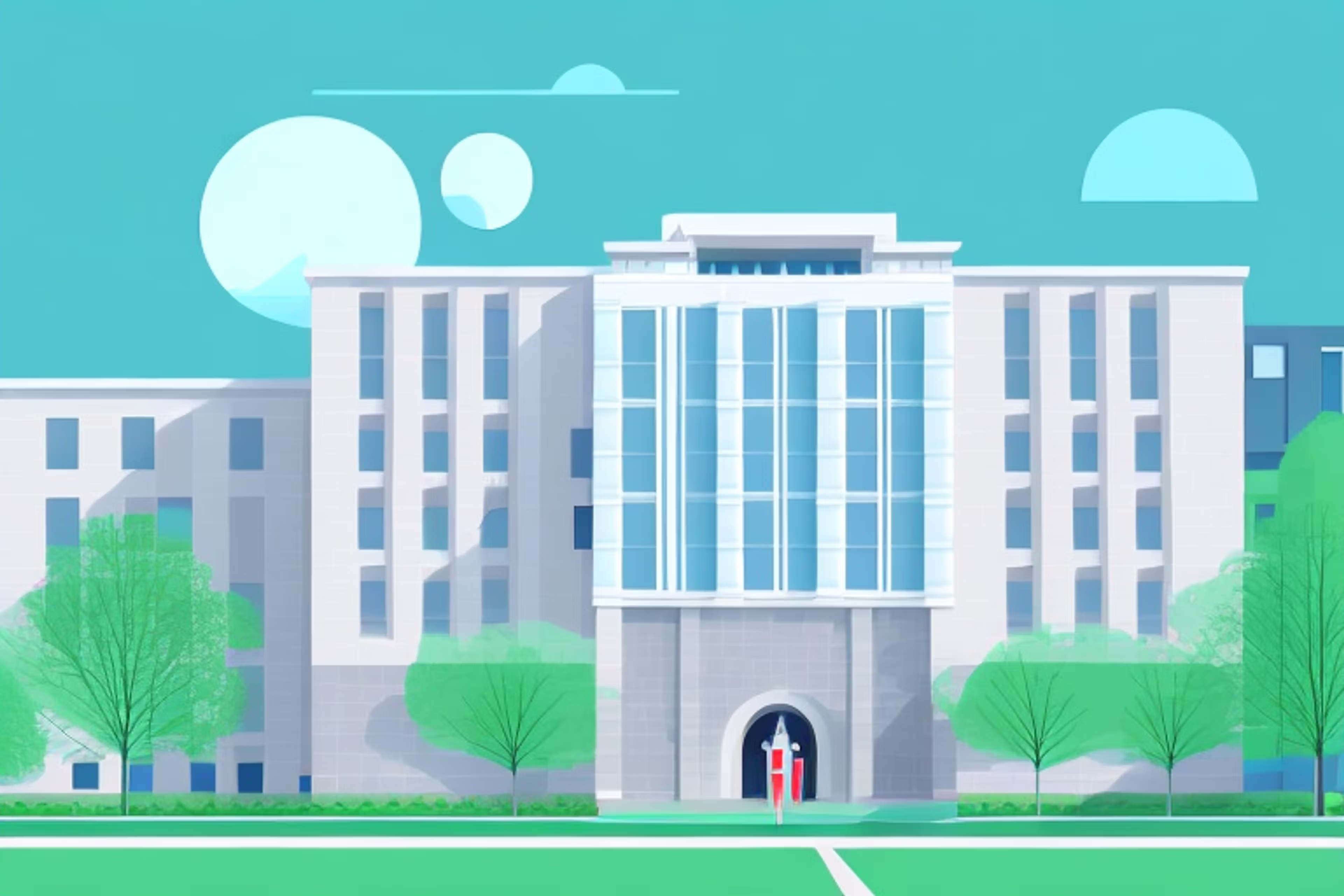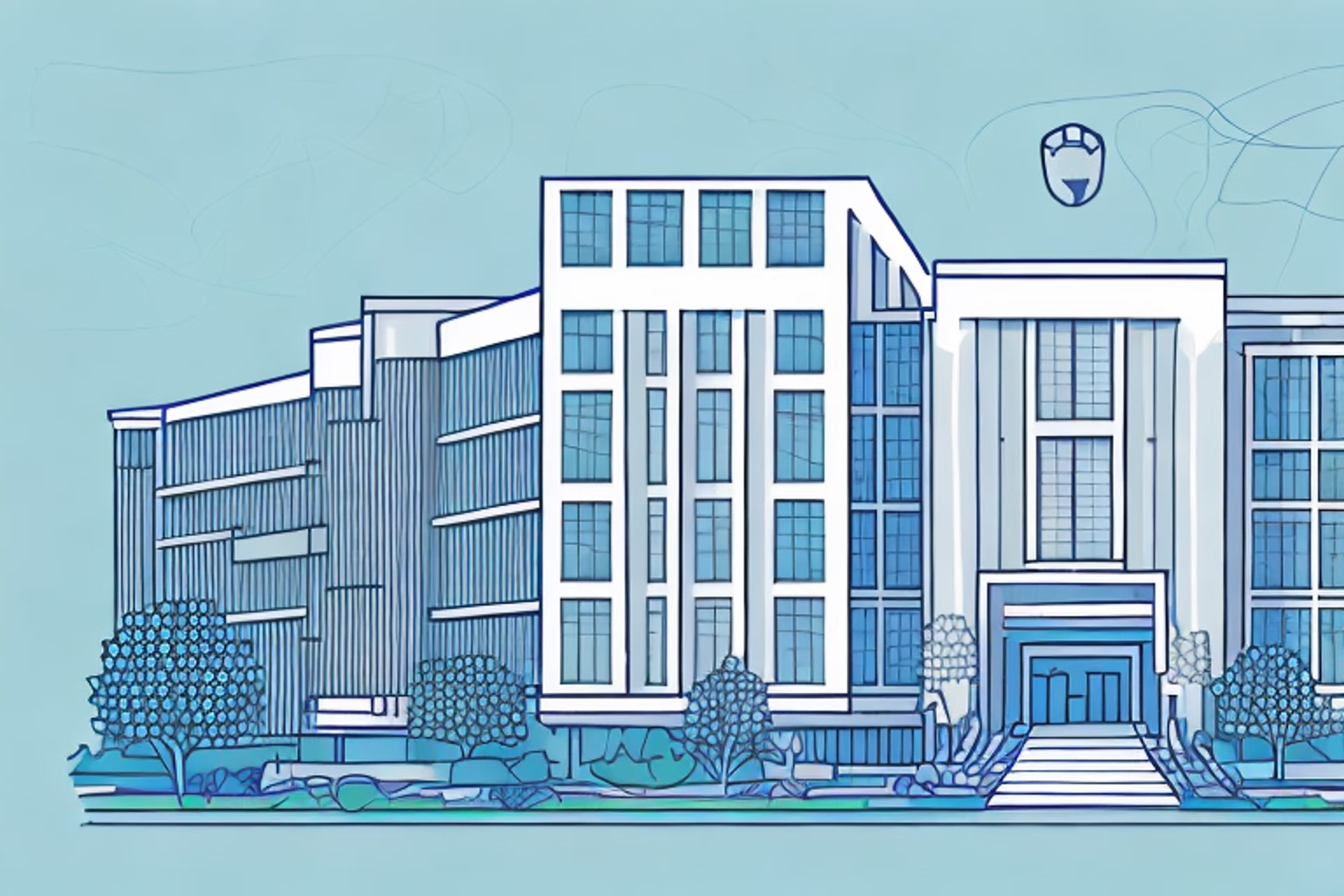West Virginia University School of Medicine: Admission Requirements and Application Process
Looking to apply to West Virginia University School of Medicine? Our comprehensive guide covers everything you need to know about admission requirements and the application process.
Posted March 6, 2025

Table of Contents
Deciding which medical school to attend is one of the most important decisions a student will make in their academic career, as it will affect not only their education but also their future career prospects. With countless medical schools across the country, it's crucial to choose a school that meets your academic needs and career goals. In this article, we'll explore West Virginia University School of Medicine (WVU School of Medicine) and its admission requirements and application process.
The Importance of Choosing the Right Medical School
Choosing the right medical school is crucial since it determines not only the quality of education but also the job prospects of the student. Since the level of competition in the medical field is high and the cost of tuition is substantial, it's necessary to select a medical school that matches the student's interests and needs.
One important factor to consider when choosing a medical school is the location. Some students prefer to attend a school close to home, while others may want to explore new cities or even countries. It's important to research the location of the school and consider factors such as cost of living, transportation, and safety.
Another important consideration is the curriculum and teaching methods of the medical school. Some schools may focus more on traditional lecture-style teaching, while others may offer more hands-on experience and clinical rotations. It's important to choose a school that aligns with the student's preferred learning style and career goals.
A Brief Overview of West Virginia University School of Medicine
West Virginia University School of Medicine is a public medical school located in Morgantown, West Virginia. It was founded in 1902 and is owned by West Virginia University. WVU School of Medicine offers several academic programs, including the M.D., D.O., Ph.D., and Masters in Health Sciences.
The school has a strong focus on research, with faculty members conducting groundbreaking research in areas such as cancer, neuroscience, and cardiovascular disease. In addition, WVU School of Medicine has partnerships with several hospitals and healthcare organizations throughout the state, providing students with hands-on clinical experience and opportunities to serve the local community.
Eligibility Criteria for Admission to WVU School of Medicine
The eligibility criteria for admission to WVU School of Medicine include having a bachelor's degree from an accredited institution, proof of U.S. citizenship, permanent residency, or an appropriate visa, and specific course prerequisites, including one year of biology, physics, and English. Additionally, students must have a cumulative GPA of at least 3.0 and a minimum MCAT score of 495.
It is important to note that meeting the minimum eligibility criteria does not guarantee admission to the WVU School of Medicine. Admissions decisions are based on a holistic review of each applicant's academic achievements, personal qualities, and experiences. The School of Medicine values diversity and encourages applications from individuals with unique backgrounds and perspectives.
Understanding the Application Process at WVU School of Medicine
The application process for WVU School of Medicine consists of several steps. Students must complete their primary application through the American Medical College Application Service (AMCAS). WVU School of Medicine also requires a supplemental application that includes essays and letters of recommendation. The school also requires a non-refundable application fee of $70.
Once the primary and supplemental applications are received, the WVU School of Medicine Admissions Committee reviews each application thoroughly. The committee looks for applicants who have a strong academic background, relevant extracurricular activities, and a genuine passion for medicine. Applicants who meet the initial criteria are invited for an interview, which is a crucial step in the application process.
The interview process at WVU School of Medicine is designed to assess an applicant's communication skills, critical thinking abilities, and overall fit for the program. The interview panel consists of faculty members, current medical students, and community members. After the interview, the Admissions Committee makes a final decision on each applicant. Accepted students are notified by mail and email, and are required to submit a deposit to secure their spot in the incoming class.
Tips for Crafting a Compelling Personal Statement
Crafting a compelling personal statement is an essential part of the application process, as it gives students the opportunity to showcase their personality and aspirations. Tips for crafting a compelling personal statement include knowing oneself, understanding the audience, being honest, and staying focused on the topic.
Another important tip for crafting a compelling personal statement is to use specific examples and anecdotes to illustrate your points. This helps to make your statement more engaging and memorable for the reader. Additionally, it is important to proofread your statement carefully to ensure that it is free of errors and flows smoothly. Finally, don't be afraid to ask for feedback from trusted friends, family members, or mentors to help you refine your statement and make it the best it can be.
Key Components of a Successful Application to WVU School of Medicine
The key components of a successful application to WVU School of Medicine include having a strong GPA and MCAT score, submitting a well-written personal statement, having a diverse range of extracurricular activities, and providing letters of recommendation from distinguished faculty members, supervisors, or healthcare providers.
Another important component of a successful application to WVU School of Medicine is demonstrating a commitment to serving underserved communities. This can be shown through volunteer work, clinical experiences, or research projects that focus on addressing health disparities and improving access to healthcare for marginalized populations. Admissions committees at WVU School of Medicine value applicants who have a strong sense of social responsibility and a desire to make a positive impact on the world through medicine.
How to Prepare for the MCAT Exam: Tips and Strategies
The MCAT exam is a crucial part of the application process for medical school. Tips and strategies for preparing for the MCAT exam include practicing with practice questions, taking diagnostic tests, creating a study plan, and seeking advice from experienced medical professionals.
One important tip for preparing for the MCAT exam is to focus on your weaknesses. Take the time to identify the areas where you struggle the most and dedicate extra study time to those topics. This will help you improve your overall score and feel more confident on exam day.
Another strategy for success on the MCAT exam is to prioritize your mental and physical health. Make sure to get enough sleep, exercise regularly, and eat a healthy diet. Taking care of yourself will help you stay focused and alert during your study sessions and on exam day.
Exploring Different Pathways to a Career in Medicine
There are several different pathways to a career in medicine. Some students choose to enter medical school directly after completing their undergraduate degree, while others enter a post-baccalaureate program to improve their academic credentials. Also, some students prefer to attend a medical school that offers both D.O. and M.D. programs.
Another pathway to a career in medicine is to become a physician assistant. Physician assistants work under the supervision of a licensed physician and are responsible for performing a variety of medical tasks, such as taking patient histories, conducting physical exams, and prescribing medications. To become a physician assistant, students must complete a master's degree program and pass a national certification exam.
For those interested in research, a career in academic medicine may be a good fit. Academic medicine involves conducting research, teaching medical students, and providing patient care. To pursue a career in academic medicine, students typically complete a residency program and then a fellowship in their chosen specialty. They may also need to obtain a Ph.D. in a related field to conduct research.
Funding Your Medical Education: Scholarships, Loans, and Grants Available at WVU
Medical school can be quite expensive, and many students require financial aid to support themselves throughout their academic careers. WVU School of Medicine offers several funding opportunities, including scholarships, loans, and grants. Students can apply for these funding opportunities to ensure that they are not burdened by financial constraints while pursuing their academic careers.
It is important to note that some scholarships and grants may have specific eligibility requirements, such as academic achievement or financial need. Students should carefully review the criteria for each funding opportunity before applying. Additionally, WVU School of Medicine offers financial counseling services to help students navigate the funding process and make informed decisions about their financial future. By taking advantage of these resources, students can focus on their studies and achieve their goals without worrying about the financial burden of medical school.
Student Life and Resources at WVU School of Medicine
WVU School of Medicine provides students with numerous resources and opportunities, including an online student portal, a variety of student organizations, and a supportive environment. Additionally, students have access to state-of-the-art facilities, including lecture halls, research labs, and clinical facilities.
Career Prospects for Graduates of WVU School of Medicine
WVU School of Medicine provides students with excellent career prospects thanks to its exceptional academic programs and robust clinical experiences. Graduates of WVU School of Medicine have gone on to become successful doctors, researchers, and healthcare providers in numerous healthcare settings, including private practice, clinical research, and academic medicine.
In conclusion, choosing the right medical school is crucial when pursuing a career in the medical field. WVU School of Medicine offers a diverse range of programs, world-class facilities, and numerous funding opportunities to students who are passionate about medicine and healthcare. By following the application guidelines and seeking advice from experienced medical professionals, students can position themselves for a successful career in medicine and healthcare.
Stay in the loop. Go places.
Join 100,000+ others and receive free resources, exclusive event invites, and personalized support to reach your goals.










